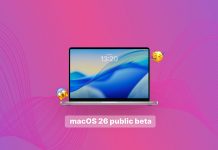 Spotify, Europe’s popular music streaming service, announced new versions of their desktop and iPhone (and Android) apps, giving you the ability to sync your playlists to your iPhones, iPads and iPods, no iTunes required!
Spotify, Europe’s popular music streaming service, announced new versions of their desktop and iPhone (and Android) apps, giving you the ability to sync your playlists to your iPhones, iPads and iPods, no iTunes required!
If you still rock an older iPod, the current iPod classic, iPod nano or iPod shuffle, you couldn’t get your Spotify playlists onto your device without recreating them in iTunes and then syncing your iPod. With the new version, that’s slowly rolling out to all users, you can just hook up your iPod to your computer via a USB cable and use Spotify to sync all the playlists you want to, without any help from iTunes. Since most people use Spotify to discover new music or listen to music they don’t own yet, Spotify thought of a way to bring this music to your iPods as well: they’re launching a music store.
The app syncs only those songs to your iPod that you’ve previously imported to the app, meaning just the MP3s you own. In the past, if you found a song you liked on Spotify, you had to leave the app and get the MP3 from somewhere else, the iTunes Store for example. Now, with the new download service, you can buy so called MP3 bundles containing 10 to 100 songs for about 50p per song (about 83¢). Those songs can then be synced to your iPods as well.
Another new feature is the ability for all users to sync their playlists to their iPhones. So, if you have bought a playlist on Spotify you can just fire up the free Spotify app on your iPhone (or iPad, though the app is not universal), and sync your playlists wirelessly to the phone. In the past the app was only useful to those who had a Spotify Premium account, giving the pro users the ability to stream music to their devices wherever they were.
The new iPod syncing features as well as the new Spotify store are a clear sign that Spotify is trying to fight Apple’s leading position when it comes to selling MP3s online. This kind of competition is always good and welcome because it requires everyone to improve or extend their products and offerings. I’m sure we will see Apple’s response soon, possibly even in the form of a new product launch.
Article Via TechCrunch






